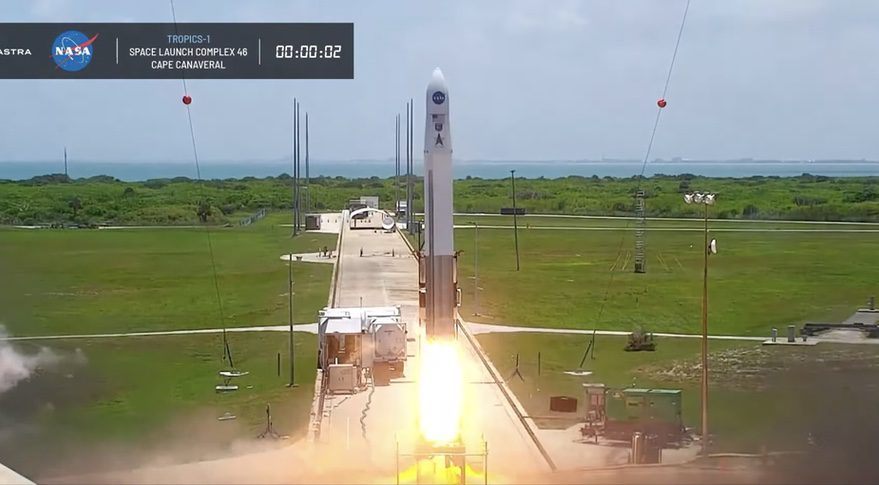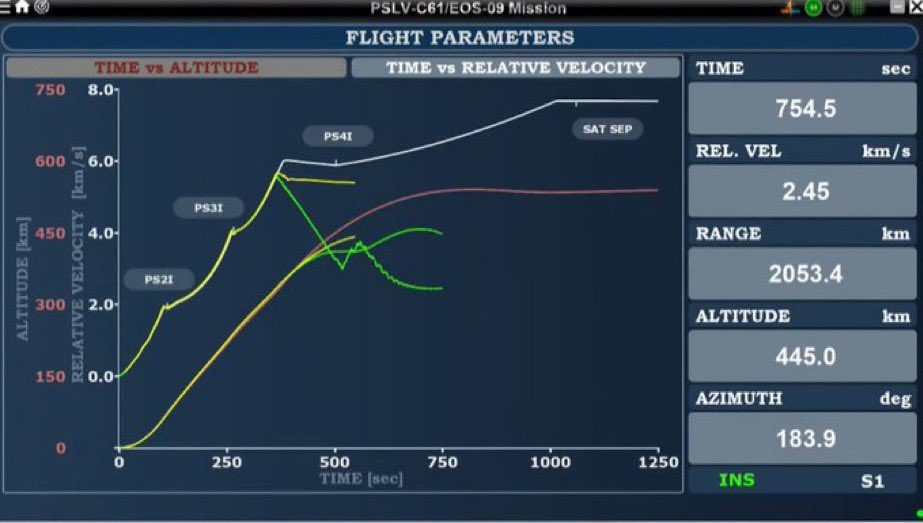After a two-hour delay due to a problem with the Liquid Oxygen storage/conditioning, Astra Space launched its Astra Rocket 3.3 (flight LV0010) from Cape Canaveral, Florida, USA at 1743 GMT on 12 June 2022. But all did not subsequently go to plan. The lift off, fairing and stage separation and second stage ignition went satisfactorily, but around four minutes into the second stage burn (planned to last five minutes 15 seconds), the engine suffered a premature shutdown. Observation cameras showed a puff from the engine and then the stage began to tumble.
Two hurricane monitoring TROPICS 3U Cubesat spacecraft for NASA, TROPICS 1 and TROPICS 2, were lost as neither they nor their attached second stage achieved orbital velocity. They fell back into the Atlantic Ocean, close to the coast of West Africa. A full investigation into the failure is under way.
The lost TROPICS (Time Resolved of Precipitation structure and storm Intensity with a Constellation of Smallsats) spacecraft were to be part of a six-satellite constellation operating from a near 30 degree inclined 500 km altitude low Earth orbit.
The unusual nature of the orbit was the reason why NASA selected the Astra Rocket 3.3 for this dedicated mission and for two more flights carrying the second and third pair of TROPICS satellites. According to the Seradata SpaceTrak database, this was under a US$7.95 million contract signed on 26 February 2021.
The satellites are built and operated on behalf of NASA Goddard by Blue Canyon Technologies. MIT Lincoln Labs built the science payload – a radiometer and a passive microwave spectrometer.

Astra Rocket 3.3 launch went initially well but its second stage later shutdown early losing two NASA TROPICS satellites. Courtesy: NASASpaceflight/Astra Space Inc
While the loss of the initial pair of spacecraft is a blow to NASA, it remains hopeful that if the remaining satellites can be launched successfully, the constellation can still perform its hurricane study and warning function.
The failure is the latest in the Astra Rocket’s sorry history. Excluding two suborbital research and development test flights of incomplete rockets, which both ended in failure, the Astra Rocket 3 series has had seven orbital attempts with five failures. While the previous flight was a success, a launch in February ended in failure after the fairing failed to separate after five separation mechanisms were fired in an incorrect order due to an electrical signalling fault.
Post Script: Following the launch failure the stock market price of Astra fell 25 per cent, from US$2 to about US$1.50.







